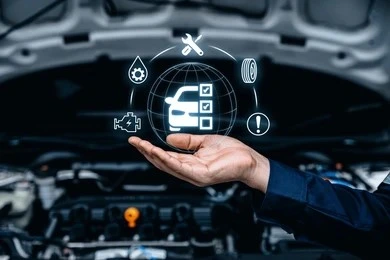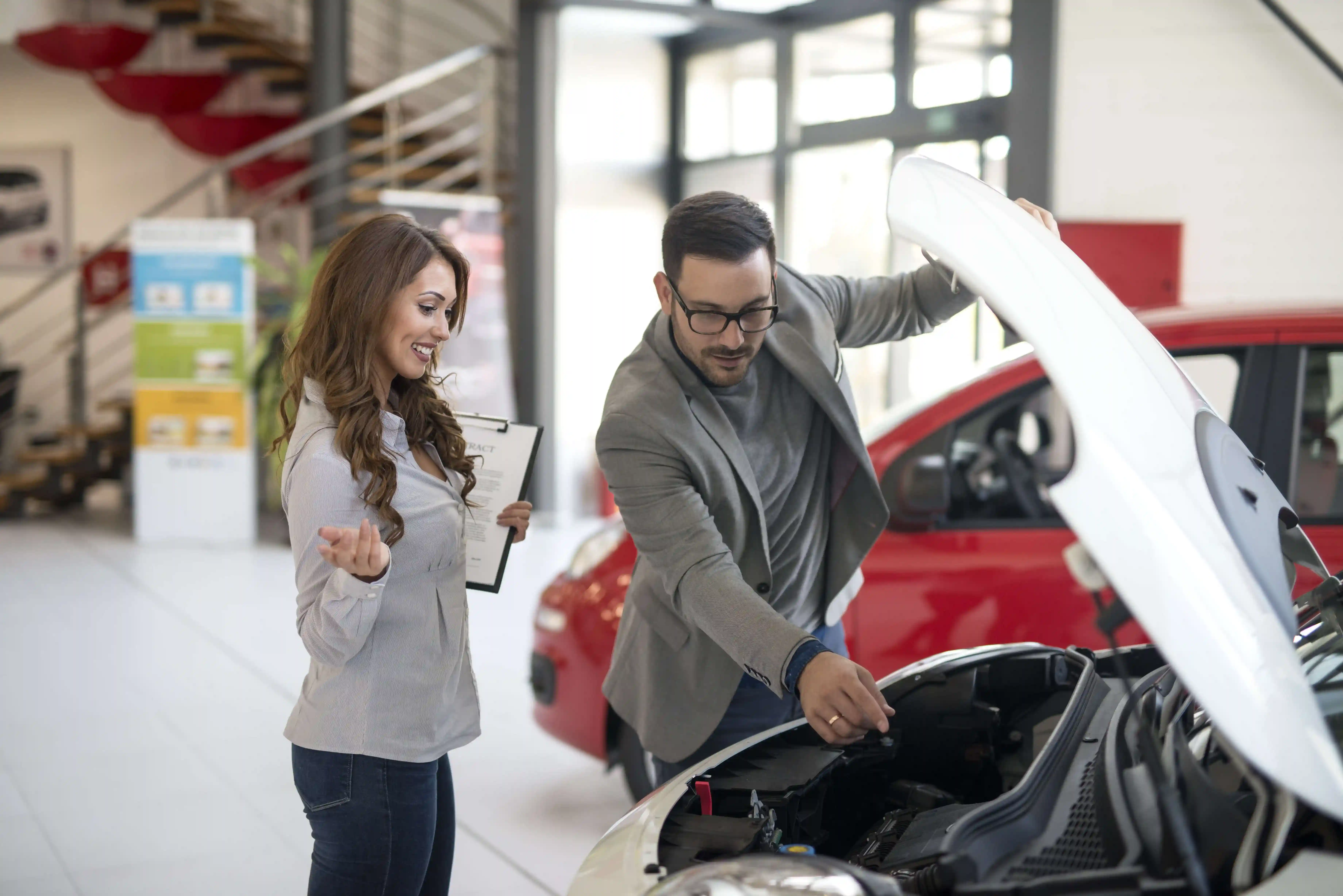Ask these crucial questions to ensure a smooth and informed used car buying experience.
Introduction
Buying a car is a significant investment, and you want to make sure you get the best deal possible. Salvage cars, which are vehicles declared a total loss by insurance companies due to damage, theft, or other reasons, can seem like a tempting option due to their lower price tag. However, purchasing a salvage car comes with risks that could lead to unexpected costs or safety concerns.
In this blog, we’ll help you understand the important factors to consider when buying a salvage car, including the potential risks, how to assess a salvage vehicle, and whether it’s safe to move forward with such a purchase.
What Is a Salvage Car?
A salvage car is a vehicle that has been deemed a total loss by an insurance company. This can occur after an accident, natural disaster, theft, or other damage. When an insurance company determines that the cost to repair the vehicle exceeds its current value, they issue a salvage title. The car is then typically sold to a salvage yard or auctioned to buyers who specialize in buying and repairing these vehicles.
While salvage cars are often priced much lower than their clean title counterparts, they may come with hidden issues that could affect their safety, reliability, and long-term value.
Potential Risks of Buying a Salvage Car
While it’s possible to find a salvage car that’s been repaired and restored to a safe condition, there are significant risks involved that you should be aware of before making your purchase.
1. Hidden Damage and Structural Issues
Salvage cars may have sustained serious damage in the past, such as frame or structural damage, that’s not always immediately visible. Even if the car looks fine on the surface, it could have underlying issues that compromise its safety, performance, and longevity.
- Structural Damage: Cars with damaged frames may not be able to absorb impacts properly in the event of an accident, which could lead to increased risk of injury or death in a crash.
- Compromised Safety Features: The airbags, seatbelts, and other safety systems may have been damaged or improperly repaired, which could jeopardize your safety on the road.
2. Unclear Repair History
Many salvage cars are sold "as-is," with limited information about the repairs that have been made. While some salvage cars are restored to near-new condition, others may have received subpar repairs that could lead to mechanical issues down the road.
- Substandard Repairs: Some salvage vehicles may have been repaired with cheap or non-original parts, leading to future mechanical failures.
- Incomplete Repairs: In some cases, the damage may not have been fully repaired, leaving issues that are not immediately obvious but can lead to costly fixes.
3. Difficulty in Reselling
Salvage cars have a salvage title, which can make it difficult to resell them later on. Buyers may be wary of purchasing a car with a salvage title due to the associated risks, and some may be unable to secure financing for such a vehicle. This can result in a lower resale value and limited market interest when you decide to sell.
- Lower Resale Value: Salvage cars generally have a much lower resale value compared to clean title vehicles, and you may struggle to get a fair price when selling.
- Limited Market: Some states have restrictions on selling salvage cars, and it may be difficult to find a buyer who is willing to take on the risk of owning a salvage vehicle.
4. Insurance Challenges
Getting insurance for a salvage car can be more difficult than insuring a car with a clean title. Many insurers will offer limited coverage or refuse to insure a salvage car altogether. If you are able to get insurance, the premiums may be higher than they would be for a clean title vehicle.
- Limited Coverage: Some insurers may only offer liability coverage for salvage cars, meaning you won’t be able to get comprehensive or collision coverage.
- Higher Premiums: Due to the increased risk of damage and potential repair costs, salvage cars may come with higher insurance premiums.
How to Assess a Salvage Car Before Buying
If you’re still considering purchasing a salvage car, it’s essential to do your due diligence before finalizing the deal. Here are some steps to help you assess whether the car is worth buying.
1. Check the Vehicle’s History
Before making any decisions, it’s important to check the car’s history. A vehicle history report will provide valuable information about the car’s previous accidents, repairs, and whether it has been properly restored. You can obtain a history report from services like AutoInspect or AutoCheck by using the car’s Vehicle Identification Number (VIN).
- Accident Details: The report will show if the car has been in any major accidents and whether the damage was extensive enough to warrant a salvage title.
- Repair and Maintenance Records: Look for information on any repairs or maintenance performed on the car, as this can give you insight into the quality of repairs done.
- Title Status: Make sure the car’s title is properly marked as “salvage” and that there are no issues with the title transfer.
2. Inspect the Car Thoroughly
A physical inspection is a must for any salvage car. If you’re not confident in your ability to assess the vehicle’s condition, consider hiring a professional mechanic or getting a pre-purchase inspection.
- Exterior and Interior Inspection: Look for signs of poor repairs, such as mismatched paint, uneven panel gaps, or rust. Inside, check for any damage to the interior upholstery or dashboard.
- Frame and Structural Integrity: Pay close attention to the car’s frame, as any damage here can significantly affect its safety and performance. Look for signs of bending, warping, or welding that might indicate major repairs.
- Engine and Mechanical Condition: Ensure that the engine, transmission, suspension, and other key mechanical components are in good working order. Salvage cars may have hidden mechanical issues that could be costly to repair.
3. Get a Professional Inspection
It’s always a good idea to get a professional mechanic to inspect the car, especially if you’re not familiar with the signs of major damage. A mechanic can identify any hidden issues, such as frame damage, mechanical problems, or signs of substandard repairs, that may not be visible to the untrained eye.
- Frame Damage: A mechanic can check for structural issues that could affect the car’s safety and performance.
- Hidden Mechanical Problems: Experienced mechanics can also detect mechanical problems that may not be apparent during a casual inspection, such as engine or transmission issues.
4. Evaluate the Repair Quality
If the salvage car has been repaired, it’s important to evaluate the quality of the repairs. Ask the seller for detailed records of the work that has been done and ensure that it was performed by a reputable repair shop.
- Use OEM Parts: Ideally, the repairs should have been done using original equipment manufacturer (OEM) parts, which ensure that the car meets the manufacturer’s standards.
- Professional Restoration: If the repairs were done by a professional, reputable repair shop, the car is more likely to be in safe, drivable condition. If the work was done by an amateur, you may be facing significant repairs in the future.
When Should You Avoid Buying a Salvage Car?
- If the Car Has Major Structural Damage: If the car has been in a severe accident that caused frame damage or compromised its structural integrity, it’s best to steer clear. This could pose a significant safety risk and lead to costly repairs.
- If You Can’t Verify the Repair Quality: If the car’s repair history is unclear or if the repairs were done poorly, the car may not be safe to drive. Don’t take the risk unless you’re sure the repairs were done to a high standard.
- If You Plan to Resell the Car Soon: Salvage cars can be difficult to resell, so if you plan to sell the car in the near future, you may want to consider other options.
Conclusion: Is It Safe to Buy a Salvage Car?
Buying a salvage car can be a cost-effective option, but it comes with a set of risks. While it’s possible to find a salvage car that’s been properly repaired and restored, it’s crucial to conduct a thorough inspection and research the car’s history before making a decision.
If you’re willing to put in the effort to assess the car’s condition, a salvage car can sometimes offer significant savings. However, if you’re not comfortable with the potential risks or are unsure about the car’s repair quality, it may be better to explore other options.
By following the steps outlined in this guide and working with a trusted mechanic, you can make a more informed decision and ensure that your purchase is a safe and worthwhile investment.
Key Takeaways:
- Salvage cars are vehicles with significant past damage, typically resulting in a salvage title.
- While they are cheaper, salvage cars can have hidden safety and mechanical issues.
- To safely buy a salvage car, check the vehicle history, inspect the car thoroughly, and consider getting a professional inspection.
- Avoid salvage cars with major structural damage or poor repair quality.
By carefully evaluating the risks and taking the necessary steps, you can decide whether a salvage car is the right choice for you.




Share this post: